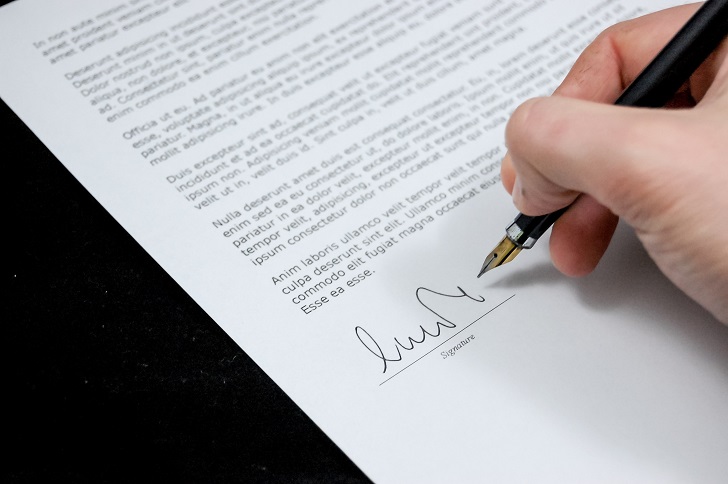In the glitzy world of celebrity marriages, where love often meets its match in fame, fortune, and the media spotlight, the dissolution of Andre "Dr. Dre" Young and Nicole Young's union has been nothing short of a legal drama.
The headlines buzzed with news of their divorce settlement, which was no small feat given their 24-year-long marriage. Yet, this high-profile split is more than just tabloid fodder; it's a window into the complexities of divorce, prenuptial agreements, and the laws that govern them.
The Beginning of the End
Nicole Young initiated the divorce proceedings in June 2020, citing "irreconcilable differences." However, her accusations against Dr. Dre went beyond the typical grounds for divorce.
She alleged a history of abuse during their marriage, claiming he had, at various times, "held a gun to [her] head," "punched [her] in the head/face," and even "kicked down a door" while she sought refuge from his anger. These allegations cast shadows the proceedings, as Dr. Dre vehemently denied wrongdoing.

Anna Shvets/ Pexels | Nicole Young initiated the divorce proceedings in June 2020, citing "irreconcilable differences"
The Prenuptial Agreement
Before they walked down the aisle in 1996, Dr. Dre and Nicole Young inked a prenuptial agreement. This legal document laid the groundwork for how the two would split their assets if they decided to dissolve their marriage.
According to the agreement, jointly acquired property would be considered community property, split evenly upon divorce. Any property individually acquired or received would remain the sole possession of the acquiring spouse. The prenup did not eliminate Nicole Young's right to spousal support.
The Contestation of the Prenup
Throughout the divorce proceedings, Nicole Young contested the validity of the prenuptial agreement. She claimed it was signed under duress, asserting, "I was extremely reluctant, resistant, and afraid to sign the agreement."
She alleged that she felt coerced by Dr. Dre and his team of professionals, leaving her with no choice but to sign shortly before their wedding reluctantly. Additionally, she argued that Dr. Dre had torn up the prenup during their marriage, rendering it null and void.

Pixabay/ Pexels | Before they walked down the aisle in 1996, Dr. Dre and Nicole Young inked a prenuptial agreement
The Court's Verdict
Dr. Dre wanted the prenuptial agreement to govern the distribution of assets, while Nicole Young demanded half of his $1 billion estate and a staggering $2 million per month in spousal support.
The court upheld the prenuptial agreement, ordering Dr. Dre to pay Nicole Young a substantial $100 million in two installments, a significant sum by any measure, but one that pales compared to his estimated net worth of $820 million. Notably, Nicole Young did not secure any alimony.
As part of the settlement, Nicole Young retained possession of four vehicles, all her jewelry, and the cash and bank accounts she had maintained. On the other hand, Dr. Dre claimed ownership of their seven properties and six vehicles, and retained full rights to his master recordings, trademarks, interests in various partnerships and trusts, and his valuable stocks in Apple, including proceeds from the sale of Beats by Dre.
The Power of the Prenup
Had Dr. Dre and Nicole Young not entered a valid prenuptial agreement, her share of the divorce settlement could have been considerably higher. However, because the prenup was deemed legally sound, the court was bound by its terms regarding alimony and asset division. This case underscores the importance of carefully crafted prenuptial agreements in high-net-worth marriages.

Ekaterina Bolovtsova/ Pexels | The court upheld the prenuptial agreement, ordering Dr. Dre to pay a substantial $100 million
The Legal Landscape in New Jersey
In New Jersey, prenuptial agreements are governed by N.J.S.A. 37:2-31. These agreements outline the rights and assets of each party in the unfortunate event of a divorce. For a prenup to be enforceable, it must be voluntarily entered into, with full financial disclosure and representation by legal counsel or a knowing waiver of this right.
The party challenging the agreement bears the burden of proof, needing clear and convincing evidence that it was involuntary or unconscionable upon execution. In most cases, invalidating a prenuptial agreement is a formidable task.
Moreover, in New Jersey, amending or revoking a prenuptial agreement requires the drafting and signing of a new written document expressing the parties' intent to make changes. Simply tearing up the agreement, as Dr. Dre and Nicole Young did, does not meet the legal standards for revocation, and the original prenuptial agreement remains in force.








